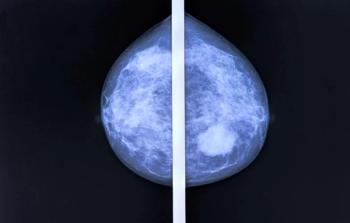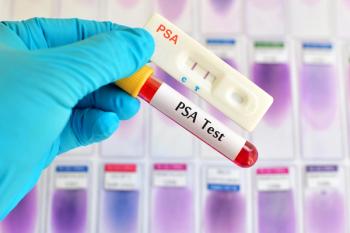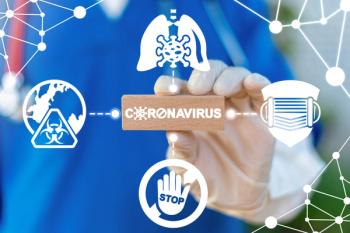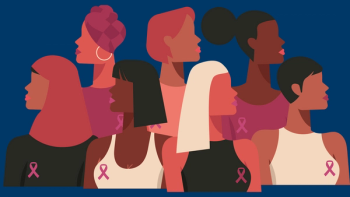
Early detection is key to improving prognosis and achieving better outcomes for patients.

Early detection is key to improving prognosis and achieving better outcomes for patients.

Longer travel times and fewer available resources can make rural cancer care particularly challenging, but oncology nurses may play a crucial role in promoting screenings in these areas.

On this episode of “The Vitals,” an expert in genetics discusses ongoing research to address cisplatin-induced hearing loss in pediatric patients with cancer.

A total of 7.4% of patients received a secondary or downstream procedure within the 12 months following their lung cancer screening.

The increased risk of prostate cancer associated with MSH2 and MSH6 pathogenic variants point to a need for annual PSA screening in men over the age of 40.

The data showed that a daily intake of around 300 IU of vitamin D — roughly the same as three 8-oz. glasses of milk — was linked to a nearly 50% decreased risk of early-onset colorectal cancer among women between the ages of 25 and 42 years.

Adherence to current clinical guidelines may contribute to systematic underdiagnosis in Black women, says Kemi M. Doll, MD, MS.

Increases were detected in all cancer screening procedures except for colonoscopies.

An official statement has been signed and issued by the National Comprehensive Cancer Center Network insisting that health care systems mandate COVID-19 immunizations for their workers

“There were delays in getting preventative screenings, there were delay in diagnostics, there was also a brief period of time when some of the clinical trials were shut down.”

“If you're an oncology nurse, you will have patients with immunotherapy–which is why we want to make sure that we are really familiar with these side effects.”

“We want to make sure we can provide the right treatment for the right patient at the right time,” says Olufunmilayo I. Olopade, MD, FACP, OON.

Multicancer early detection tests provided specified and accurate cancer signal origin detection across more than 50 tumor types.

Novel research at University of Washington aims to improve the rate of colorectal cancer screenings in rural America.

The impact of the pandemic in regard to specialty care remains to be fully realized.

Oncology nurses can play a key role in the prevention of certain cancers.

Only 4 of the 20 most common cancers have a proven screening method.

The USPSTF recommends that colorectal cancer screening start at age 45.

The novel multimodal FirstSightCRC test has shown promise in identifying colorectal cancer (CRC), as well as precancerous polyps and advanced adenomas, said Shai Friedland, MD, who added that results from the blood-based assay can inform whether a patient should undergo a colonoscopy.

Each month, we take a look back at the most popular Oncology Nursing News® stories. Here are the top 5 stories from July 2020.

These findings have serious implications for future cancer care and underscore the need to resume cancer care and screening.

A minimally invasive blood test has been found to be feasible to safely detect several types of cancers in patients without a history of malignancies.

Understanding nutritional status and patient cues is crucial in ensuring patients have the proper interventions and treatment plans.

Tobacco use among young people is an old problem that now challenges a new generation in a new form: vaping.

Biosimilars are beginning to change the way oncology professionals treat patients with cancer, and this could help alleviate the financial burden of care.

Following concerns over breast implant-associated cancer and illnesses, the Food and Drug Administration issued draft guidelines for additional labeling measures on devices.

Despite advanced technology and new treatment breakthroughs in cancer care, treatment disparity remains among African American women with breast cancer.

For patients with cancer, their journey does not end after treatment is over.

Genetic testing has come a long way in cancer care, but not all genetic tests are as defentive as some would have you or your patients beleive.

Despite increased physical activity, nutritional intake behavior among female cancer survivors did not improve with an exercise intervention program, according to a randomized, controlled trial.